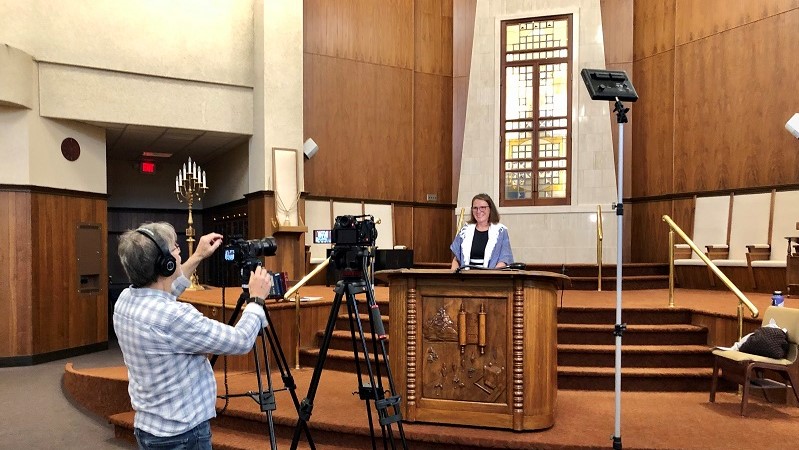As we reenter an in-person world and discover again what it means to connect with people face to face, it really puts into perspective how alone we’ve been over the last 18 months. Whether it was the frustration of online meetings or the isolation during quarantine, we didn’t just feel alone – we were physically separated.

One of the effects of this aloneness is the perception of the burden of extra responsibility. Put another way, how do we know if our leaders are doing their jobs if we can’t see them? How do we even know who is doing which job? And how can leaders delegate when they can’t interact with their people? Without the benefits of interacting through our usual support systems, we’re left feeling either untethered and unfocused or tied down and stuck.
This feeling isn’t just a consequence of pandemics. It surfaces in times of imminent transition and change. Our Torah portion this week, Parshat Devarim, introduces the final book of the Torah, which shows the Israelites totally unmoored by their change in leadership and seemingly unknown future. As reassurance, Devarim stresses the covenant between God and Israel and looks toward Israel’s future in a new land as they build a society that pursues justice and righteousness. The central theme of this section of text comes back to the Jewish roots of monotheism, the belief in one God, and building a society around the laws we’ve been given over the course of the four previous books.
Moses is in the midst of transferring leadership, sharing his final lessons with the Israelites, and helping the Israelite people prepare for this major transition. He reflects back on a moment when he was overburdened and unable to be the best he could be for the fledgling nation. To illustrate his point, Moses reminds the Israelites of the journey he himself took to build his support system in order to move the community forward. For example, he reminds them that he established a court system of different judges so that they didn’t have to wait all day for one person (Moses) to make a decision.
In this reflection, Moses’s words come in two parts: “I cannot bear the burden . . .” and “How can I bear unaided . . .?” The leader of the Jewish people admits that the problem is too big, and he simply cannot bear the burden of leadership alone. These verses are usually read in the tune we chant for Eicha, Lamentations. The melody is sad and, quite honestly, draining. It very well captures feeling alone and without support.
Individual responsibility is one thing. Of course we should all have to account for our own actions. However, support systems are critical, especially in times of trauma or transition. As we enter the last book of the Torah, we see Moses reminding the Israelites to be there for each other through this change and always. What a perfect analogy as we rediscover what it means to be there for each other as a community.



